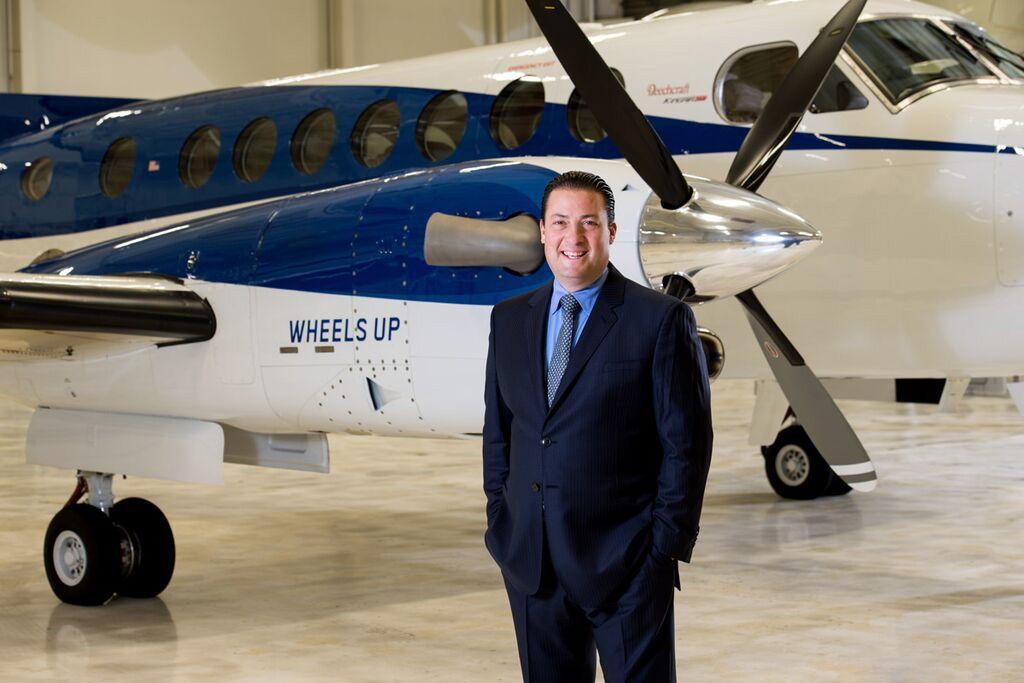
Wheels Up and Marquis Jet founder Kenny Dichter is back in the aircraft business with the launch of Real Jet.
Kenny Dichter has been called a “serial entrepreneur,” starting with Bucky’s, a retail shop he opened as a freshman at the University of Wisconsin and moving to Late Night with the Badgers, a pep rally hosted by then-ESPN personality Dick Vitale. After college, he founded three companies, Alphabet City Sports Records, Tour GCX and Marquis Jet, the first fractional jet card program, which he sold to NetJets in 2010. Business ventures also included Tequila Avion and Juice Press. In 2013, he founded Wheels Up, a membership-based private aviation provider. On Feb. 1, Wheels Up announced an agreement to become publicly traded on the New York Stock Exchange through a merger with Aspirational Consumer Lifestyle Corp., a special purpose acquisition company. The transaction, expected to close in the second quarter, values Wheels Up at $2.1 billion. It’s projected to provide up to $790 million in cash proceeds. Dichter spoke with Molly McMillin on Feb. 1.
You’ve often talked about wanting to take Wheels Up public. What does the merger with Aspirational Consumer Lifestyle and subsequent public offering mean for the company?
It’s a great day. Wheels Up has global aspirations, pun intended, which you can see by our partnership with Aspirational Consumer Lifestyle and its seasoned team of global executives led by Ravi Thakran, former group chairman of LVMH Asia. The mandate of their SPAC (special purpose acquisition company) is to identify a great company and apply that to the global digital marketplace. In partnering with Aspirational, it allows Wheels Up to be the global marketplace company that it can be. It’s the partnership that will enable us to be the Uber of the skies.
How do you plan to grow?
We built a great brand here in the United States. I think about the big territories—Europe, Middle East, Asia and South America.
Why did you choose a SPAC merger to go public? Why not take a more traditional route?
When you think about a SPAC transaction, there are three ways to go public: a traditional IPO (initial public offering); second, a SPAC IP or SPAC merger; or third, a direct listing. In a SPAC, you get to choose a partner like we chose in Aspirational. They were set up to help a company that has a great business model and a great business management team. (In a SPAC), you get to spend more time with your investors— people that are considering an investment in you, and we get to spend more time talking with those investors. An IPO is like speed dating. In a SPAC merger, you have more time to meet and share ideas and collaborate on what the future looks like. We added 20-plus new institutional investors in this process as part of our PIPE (Private Investment in Public Equity). It’s a way you get to vent and verify. In a traditional IPO, you don’t get a partner.
What changes do you expect to make in the future?
I think we’re looking at adjacencies that our member and our customer base would be interested in. I think about where are the markets that haven’t been digitized, organized and automated. I think about the yacht space. I think about the high-end villa space.
What are your biggest challenges now?
Our biggest challenges are our opportunities. Our opportunity is that we purchased the software called Avianis (in an asset acquisition from Avianis Systems in 2019), a leading flight management system. That is the biggest challenge—empowering the regional operators to upload their assets when they want to tap into the Wheels Up demand. It’s wiring up the foundation for the global marketplace. It’s like Open Table—when you want to get a restaurant reservation somewhere, what that software does is provide software to each and every restaurant. That reservation system taps into the global demand. We’re trying to connect millions of people to tens of thousands of aircraft in real time. This software we purchased in Avianis is the key. The true opportunity we have is empowering the local mom and pop operator, the midsize operator and the large aggregator of aircraft. If you think like the Uber model, the challenge over the next year or two is to implement and get our software ubiquitous with anybody who is operating in the Wheels Up platform.




